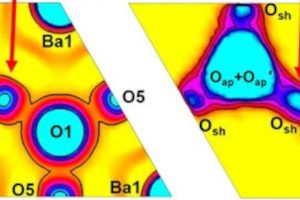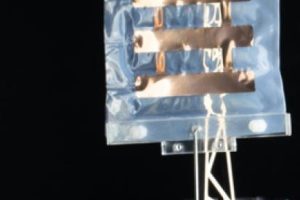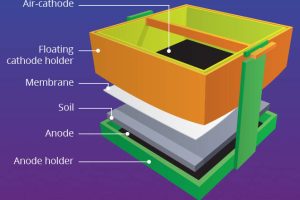The UK government has announced Enabling Technologies Programme (ETP) funding for a range of projects designed to help boost UK development of new space technologies. Twenty-three projects are involved and, in total, the UK government funding is £4 million. This is made up of £3.2 million from the UK Space Agency (UKSA) with £800,000 contributed by the Science and Technology ...
Research
The latest electronics research news from within the industry and universities from around the world.
IQE and Cardiff University fund new chairs and researchers
IQE and Cardiff University are to establish two new chairs in compound semiconductor technology – one in the university’s physics and astronomy department and the other in the School of Engineering. They will have access to the Institute for Compound Semiconductors based at the University’s Translational Research Hub. Two postdoctoral researchers and at least six PhD students will be funded ...
Testing 5G for connected vehicles
5G services enhance safety and convenience in connected vehicles – but rely on a reliable connection. A project at the University of Warwick is dedicated to making sure cars and equipment are 5G-ready. The way cars are designed, made and used should significantly change with 5G connectivity. Critical properties include low latency, real-time determinism, the ability to handle large quantities ...
Robot digger autonomously builds huge dry stone wall out of random rocks
ETH Zurich researchers have trained an autonomous excavator to construct a dry-stone wall 65m long and 6m high out of random rocks and building waste. Using sensors including cameras and lidar, it autonomously created a 3D map of the surrounding site as well as finding suitable building blocks and rocks for the wall’s construction. Scanning the stones allowed the robot ...
PROGRESSUS delivers 10-15x more EV charging stations per network connection
A three year EU project directed at energy conversion, intelligent electricity management and secure network monitoring called PROGRESSUS, has come up with a way which would make it possible to operate ten to fifteen times more electric car charging stations on a single network connection. The €20 million Electronic Components and Systems for European Leadership Joint Undertaking (ECSEL-JU) project was ...
TT Electronics opens power and control R&D Facility in Rochdale
The power and control business of TT Electronics had opened its research, development and manufacturing facility in Rochdale, near Manchester UK, to work on products for “mission-critical aerospace and defence technology”, it said. “TT’s recent acquisitions of the Power Supply business from Excelitas, Torotel and Ferranti Power and Control have enhanced our customer portfolio as well as significantly strengthening our ...
Better fuel cell ion conductor reveals new science
New ion conductivity science has been revealed during research into a better electrolyte for solid-oxide and proton ceramic fuel cells, according to Tokyo Institute of Technology (TItech). The material is actually a ‘dual-ion conductor’, which allows both protons and oxide ions to defuse, and can “realise high total conductivity at lower temperatures and improve the performance of electro-chemical devices”, according ...
Robotic soft actuators stay strong
A happy accident has revealed a way to stop electrostatic soft actuators from going limp. These actuators consists of a flat plastic bag of dielectric liquid with electrodes on opposite faces of the bag. If a high potential difference is placed between the two electrodes, they are attracted together, squishing the fluid out of the way. This action can be ...
Solid-state ‘thermal transistor’ controls heat flow with ±2.5V
UCLA researchers have made an electrically-controlled solid-state ‘transistor’ for thermal energy, with a heat-flow on-off ratio of >13:1 when controlled with a ±2.5V base bias at room temperature. The voltage-flow curve is almost a straight line, and operation at 1MHz has been demonstrated. “Precision control of how heat flows through materials has been a long-held but elusive dream for physicists ...
Bio-powered detector sounds the sewerage alarm
Researchers at Ritsumeikan University in Japan have made a simple sensor that can indicate when biodegradable waste from plant or animal sources is released into freshwater ecosystems. As well as the sensed contaminant, the organic mater is also the power source of this detector, which is essentially a novel floating fuel cell, with an LED on top. “The microbial fuel ...
 Electronics Weekly Electronics Design & Components Tech News
Electronics Weekly Electronics Design & Components Tech News









